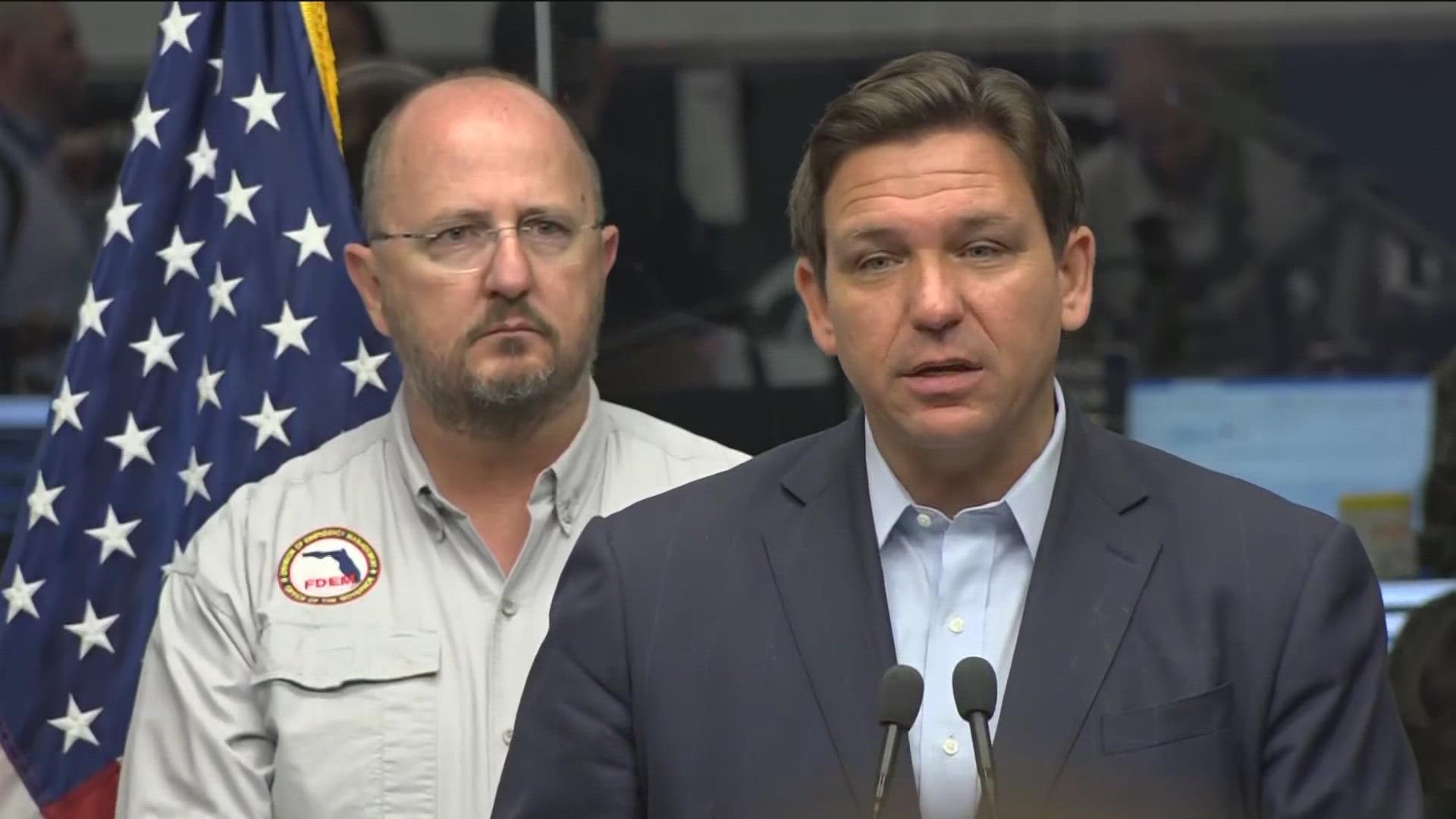TALLAHASSEE, Fla. — As Hurricane Ian continues to strengthen on its path toward Florida, Gov. Ron DeSantis announced Monday morning that the Florida Department of Transportation suspended tolls at facilities in the Tampa Bay area.
This includes popular bridges like the Pinellas Bayway, Sunshine Skyway, Selmon Expressway and I-4 Connector.
"As we continue to monitor the path of Hurricane Ian, we may do more toll suspensions in other parts of the state if that is warranted," DeSantis explained during the news conference in Tallahassee.
The Florida National Guard has activated 5,000 Florida guardsmen along with 2,000 additional guardsmen from Tennessee, Georgia and North Carolina for help, according to the governor.
With the storm set to bring potentially heavy rain, strong winds, flash flooding and storm surge, DeSantis also gave reminders to Floridians on things to keep in mind before, during and after the storm.
Power outages
DeSantis explained the state has been in contact with major utility companies throughout Florida, particularly those servicing the Gulf Coast, such as Florida Power & Light, Duke Energy and TECO along with municipal electric providers and rural electric co-ops.
"I can tell you, between all of those [companies]...there are tens of thousands of people that are staged and that will be ready to go when the storm passes to try to get power restored," the governor said. "But folks should be prepared...[for an] interruption of power."
Generators
The governor also reminded residents who have generators to not use them inside their houses. They should be used outside of the house to avoid carbon monoxide poisoning.
"Every year, we tend to have people that operate [a generator] inside their home...you will get poisoning from carbon monoxide, and we have fatalities from that," DeSantis said.
Kris Kiser, the CEO of the Outdoor Power Equipment Institute, offered some other advice back in 2021 for purchasing and using a generator:
- Buy your generator in advance. Many people will try and buy one after the power goes out, but it's better to purchase yours early so you avoid the lines and get a generator that is right for your needs.
- Calculate the power you need before choosing your generator. "The size of the generator is power you need. It's easy to find. If you want to run your TV, your air conditioner, you can add all that up," said Kiser. Look up the wattage for your appliances and find a generator that can handle the capacity.
- Buy extension cords that match the wattage and power you need and make sure they're long enough to run from the generator outside into your home.
- Make sure your generator is being run at least 20 feet away from your home, away from any open doors or windows. Point the exhaust away from your home and never run it inside an enclosed space.
- Purchase a carbon monoxide detector and place one near every sleeping area in your home. Check their battery status often.
- 'Buy and burn' your fuel. "If your fuel is more than 30 days old, buy fresh fuel and a stabilizer which is very inexpensive. It will stabilize it in a hot, humid environment like Florida or a marine environment near water. Pour the old fuel into your car or lawnmower, it still will work fine there," said Kiser.
- Test your equipment before you need it. If a storm is coming in, test your generator and stock up on fuel a few days before the weather starts to pick up.
For anyone still needing to create a plan ahead of the incoming storm, click here.
"Make sure that you have your plan in place, finish whatever preparations you have -- this thing is coming this week...," DeSantis said.
Watch the full news conference down below.

